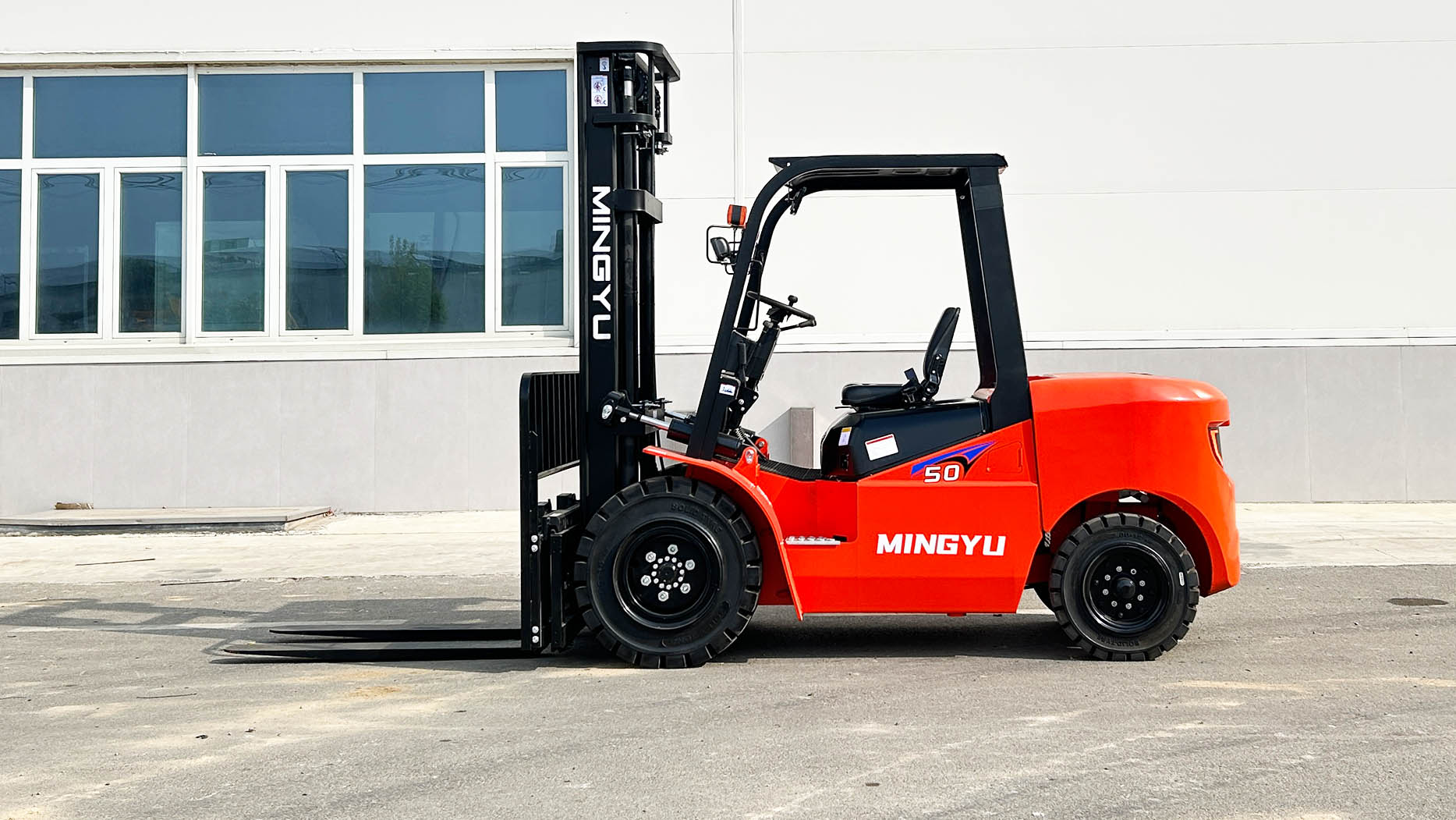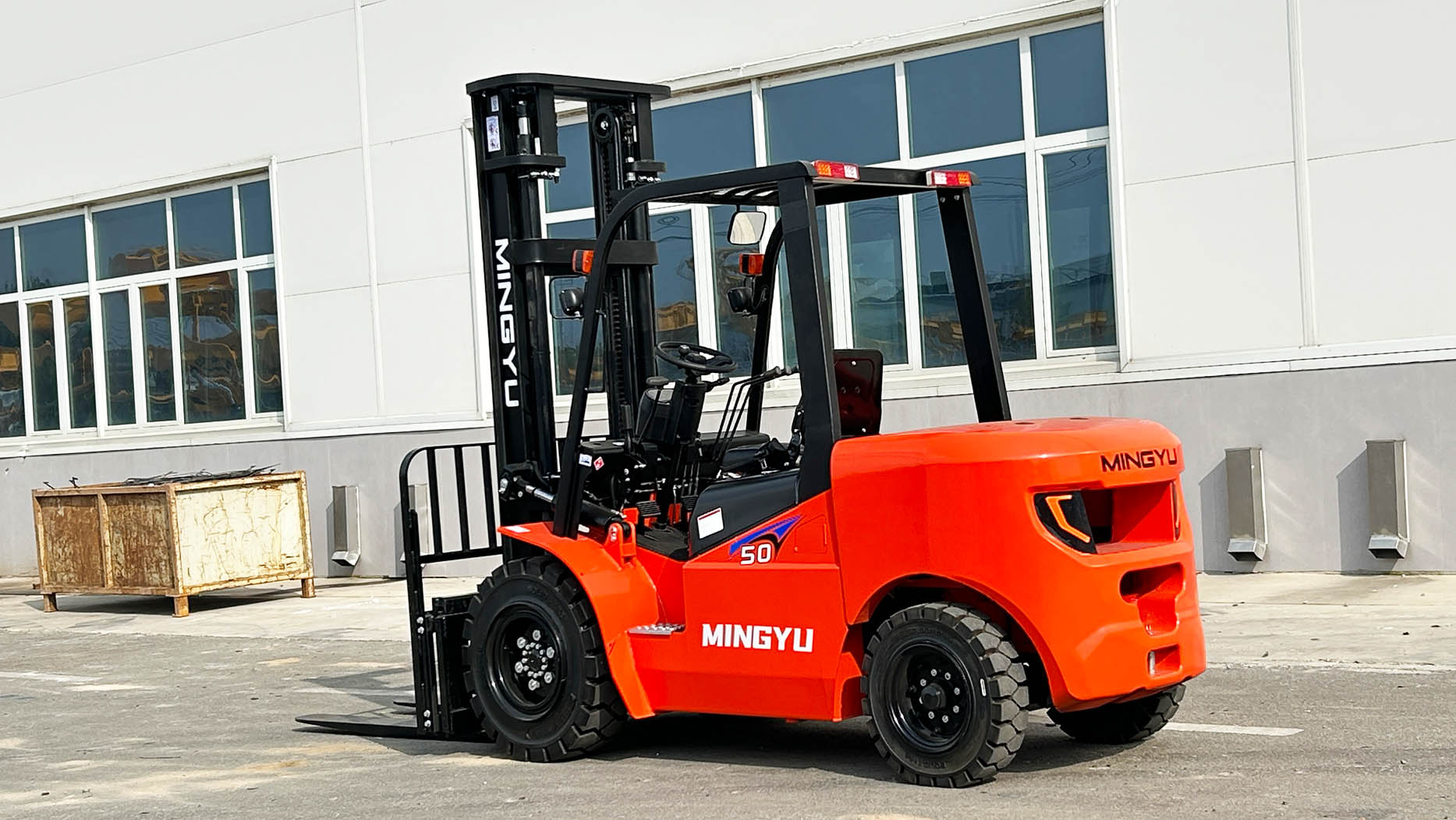In the diverse landscape of material handling, diesel forklifts stand out as the undisputed powerhouses, particularly favored for their robust performance in demanding outdoor and heavy-duty applications. These machines are engineered to tackle challenging terrains and lift substantial loads, making them a common sight on construction sites, lumberyards, port facilities, and large manufacturing plants. However, like any piece of industrial equipment, diesel forklifts come with a distinct set of advantages and disadvantages that businesses must carefully weigh before making an investment.
Understanding these pros and cons is crucial for operations managers, procurement teams, and business owners looking to optimize their fleet. The right choice of forklift can significantly impact operational costs, environmental compliance, workplace safety, and overall productivity.
The Advantages (Pros) of Diesel Forklifts
1. Unmatched Power and Torque:
This is the most significant advantage of diesel forklifts. Their engines are designed to deliver immense power and high torque, enabling them to:
* Lift Heavy Loads: Easily handle heavy, oversized, or awkwardly shaped loads that might challenge other forklift types. A common size like a forklift 3 ton diesel model showcases this capability effectively.
* Operate on Inclines and Uneven Terrain: Their robust power allows them to climb ramps and navigate rough, unpaved surfaces without performance degradation.
* Power Hydraulic Attachments: Provides ample hydraulic flow for demanding attachments like rotators, clamps, and specialized grapples.

2. Superior Fuel Efficiency for Heavy-Duty Use:
While initial fuel costs might seem higher than electricity, diesel forklifts are remarkably fuel-efficient when operating under heavy loads or continuously for long shifts. Diesel engines are designed for sustained power output, making them economically viable for high-utilization, strenuous tasks.
3. Rapid Refueling:
One of the most practical benefits for continuous operations, diesel forklifts can be refueled quickly, typically in just a few minutes. This minimizes downtime compared to electric forklifts that require hours for battery charging, especially in multi-shift environments where battery swapping might be needed.
4. Durability and Longevity:
Diesel engines are renowned for their robustness and long lifespan. They are built to withstand the rigors of heavy industrial use, often outlasting other forklift types if properly maintained. Their sturdy construction also makes them highly resilient in outdoor, often harsh, working conditions.
5. Excellent Outdoor Performance:
Diesel forklifts are explicitly designed for outdoor environments. They perform reliably in a wide range of temperatures, from freezing cold to scorching heat, and are unaffected by rain, snow, or dusty conditions that could impact electric models or require extensive protection.
6. Lower Initial Purchase Price (Compared to Electric with Batteries):
While a new diesel forklift might seem expensive, its upfront cost can sometimes be lower than a comparable electric forklift when factoring in the additional expense of multiple batteries and sophisticated charging infrastructure required for multi-shift electric operations. Brands like MYZG offer competitive pricing in the diesel forklift market, making them an accessible option for many businesses.
 Ideal Applications for Diesel Forklifts
Ideal Applications for Diesel Forklifts
Despite their drawbacks, diesel forklifts remain the preferred choice for specific applications where their advantages are paramount:
Construction Sites: Moving heavy building materials, pallets of bricks, steel beams, and operating on rough, unpaved ground.
Lumber and Timber Yards: Handling large, heavy logs and bundles of lumber.
Port and Shipping Yards: Loading and unloading containers and heavy cargo from ships and trucks.
Mining and Quarrying: Transporting heavy materials in rugged, dusty, and demanding environments.
Large Outdoor Manufacturing Facilities: Moving heavy components or finished products between outdoor production areas.
Waste and Recycling Facilities: Handling large volumes of waste, often in harsh and dirty conditions.
Agricultural Operations: Moving large bales, feed, or equipment on farms.
The Evolving Landscape
The forklift industry is continuously innovating. While diesel forklifts maintain their dominance in heavy outdoor applications, advancements in electric technology (like lithium-ion batteries) are enabling forklift electric models to perform heavier tasks and extend operating times, sometimes encroaching on traditional diesel territory. Manufacturers like MYZG and other global brands are investing in cleaner diesel engine technologies to meet environmental standards while still delivering the power and reliability that customers expect.
In conclusion, diesel forklifts are formidable machines, celebrated for their raw power, rapid refueling, and enduring durability, making them indispensable for heavy-duty, outdoor material handling. The capability of a forklift 3 ton diesel and larger models to handle substantial loads on challenging terrains is unmatched. However, their significant emissions, noise levels, and higher maintenance requirements necessitate careful consideration. Businesses must weigh these pros and cons against their specific operational environment, regulatory compliance needs, and long-term cost considerations to determine if a diesel forklift is the most efficient and suitable choice for powering their most demanding tasks.
Post time:Jun.23.2025
